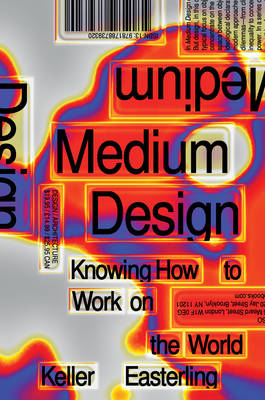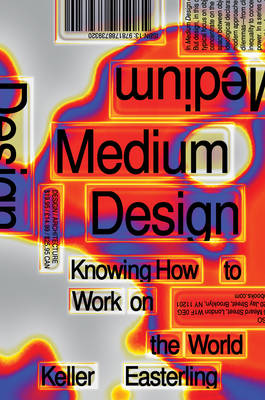
- Retrait gratuit dans votre magasin Club
- 7.000.000 titres dans notre catalogue
- Payer en toute sécurité
- Toujours un magasin près de chez vous
- Retrait gratuit dans votre magasin Club
- 7.000.0000 titres dans notre catalogue
- Payer en toute sécurité
- Toujours un magasin près de chez vous
22,45 €
+ 44 points
Description
How to Design the World: Working Without Solutions In Medium Design everyone is a designer. But design, in this case, inverts the typical focus on object over its settings to concentrate on the medium--the matrix space between objects, events, and ideological declarations. It disrupts habitual modern approaches to the world's intractable dilemmas--from climate cataclysm to inequality to concentrations of authoritarian power. In a series of case studies dealing with everything from automation and migration to explosive urban growth and atmospheric changes, Medium Design offers spatial tools for innovation and global decision-making to challenge the authority of more familiar legal or economic approaches. From this perspective, solutions are mistakes and ideologies are unreliable guides. Rather than the modern desire for the new, designers find more sophistication in relationships between emergent and incumbent technologies. Encouraging entanglement, medium design does not try to eliminate problems but rather to put them together in productive combinations. And in the process of reconceptualizing design, Easterling puzzles over bulletproof powers, Stanley Kubrick, ISIS recruits, literary characters, and iconic activists in the hope of outwitting political deadlocks and offering forms of activism for modulating power and temperament in organizations of all kinds.
Spécifications
Parties prenantes
- Auteur(s) :
- Editeur:
Contenu
- Nombre de pages :
- 176
- Langue:
- Anglais
Caractéristiques
- EAN:
- 9781788739320
- Date de parution :
- 19-01-21
- Format:
- Livre relié
- Format numérique:
- Genaaid
- Dimensions :
- 142 mm x 211 mm
- Poids :
- 272 g

Les avis
Nous publions uniquement les avis qui respectent les conditions requises. Consultez nos conditions pour les avis.






